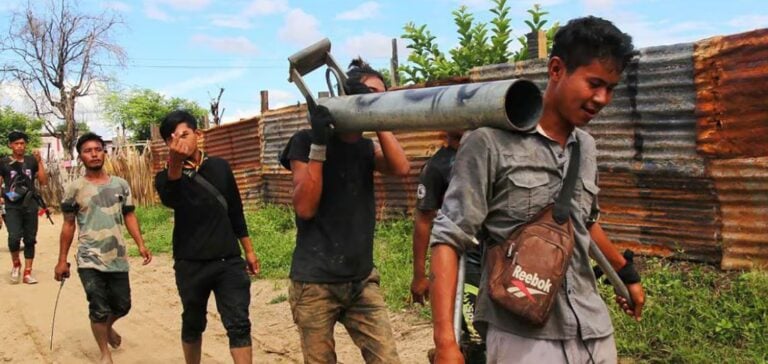Burma only manages to produce 2,800 megawatts of electricity a day, far short of the country’s estimated 5,443 MW needs. This production shortfall is becoming even more problematic with the recent rise in temperatures, which has pushed demand for air conditioning to record levels. Officials also attribute part of the energy crisis to acts of sabotage by insurgents, which have contributed to a 350 MW reduction in production. Natural gas production, essential to the country’s economy, has fallen to around 446 MW per day, while hydroelectricity, impacted by insufficient rainfall, now supplies just 350 MW per day.
Economic Impact and Political Accusations
Natural gas exports, which generate nearly $300 million (around 325 million euros) in monthly revenue for the junta, are essential to finance the war effort. This source of revenue comes mainly from the Chinese and Thai markets. Faced with this energy and economic crisis, the junta has pointed the finger at the insurgents, accusing them of intensifying the problems through targeted attacks on energy infrastructures. To date, 89 electricity pylons have been destroyed, five power plants have been bombed, and 71 attacks have been directed against major high-voltage lines.
Social consequences and citizen response
Energy instability is aggravating frustration among citizens, with increasingly frequent power cuts. In protest against the military government, many residents stopped paying their electricity bills, a campaign of civil disobedience supported by a tense political context. The number of electricity meters about to be disconnected due to non-payment is around 400,000. In addition, the conflict has forced almost 2.5 million people from their homes, exacerbating an already deep humanitarian crisis.






















